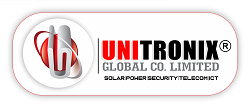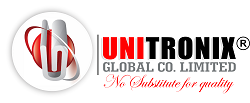BLOCKCHAIN FOR THE RENEWABLE ENERGY INDUSTRY
.jpeg)
Get Trained! Be Certified! Be Employable
BLOCKCHAIN FOR THE RENEWABLE ENERGY INDUSTRY
WHAT YOU LEARN
Peer-to-Peer Energy Trading: Blockchain enables direct peer-to-peer trading of renewable energy between producers and consumers. Producers can sell excess energy to nearby consumers without relying on traditional intermediaries, leading to reduced costs and more efficient energy distribution.
Decentralized Energy Grids: Blockchain can facilitate the creation of decentralized microgrids powered by renewable sources. Smart contracts on the blockchain can automate energy distribution and balance supply and demand within local communities. Renewable Energy Certificates (RECs): Blockchain can be used to create digital certificates that represent the generation of renewable energy. These certificates can be traded on a blockchain-based marketplace, ensuring the authenticity and traceability of renewable energy generation. Supply Chain Transparency: Blockchain can track the entire supply chain of renewable energy sources, from production to distribution. This transparency helps verify the origin of energy and supports claims of using clean and sustainable sources. Carbon Credit Management: Blockchain can streamline the issuance, tracking, and trading of carbon credits associated with renewable energy projects, making it easier for organizations to participate in carbon offset programs. Grid Management and Integration: Blockchain can enhance the integration of intermittent renewable energy sources (like solar and wind) into the power grid. Smart contracts can automate grid management, ensuring smooth interactions between various energy sources. Billing and Payments: Blockchain-based systems can automate billing and payment processes between energy producers and consumers, reducing administrative overhead and ensuring accurate and transparent transactions. Energy Data Management: Blockchain can securely manage and share energy consumption and production data, allowing consumers to have more control over their data while enabling utilities to optimize their services. Funding and Investment: Blockchain-based crowdfunding and tokenization can make it easier for individuals to invest in renewable energy projects, democratizing access to sustainable investments. Electric Vehicle Charging and Integration: Blockchain can facilitate seamless and secure payments for electric vehicle charging stations, as well as optimize charging patterns to align with renewable energy availability. Maintenance and Asset Management: Blockchain can maintain an immutable record of maintenance activities and warranties for renewable energy infrastructure, ensuring efficient asset management. Regulatory Compliance: Blockchain can automate compliance with regulations and standards in the renewable energy sector, helping organizations avoid penalties and legal issues.OUR AIM
UNITRONIX TRAINING ACADEMY (UTA) is the training arm of UNITRONIX GLOBAL CO. LIMITED; one of the fastest growing reputable RENEWABLE ENERGY companies in Nigeria. In partnership with the world’s top- rated solar modules manufacturer OEM across the world, we deliver intensive theoretical, practical and on-site installation training in solar energy. Our trainings are delivered in a conducive environment, with experienced professionals and hands-on practical sessions. Our training sessions are very interactive to ensure full understanding of all topics covered. At the end of the training, every trainee will be certified and accredited as a Unitronix Dealer for the purposes of partnership.
BENEFITS OF THIS TRAINING
- Become a certified installer/professional
- Gain employment with premier solar companies
- Engage in business partnerships and mentoring with UTA, the industry’s foremost training institution.
- Stay informed about emerging solar technologies and applications firsthand
- Achieve internationally recognized certification
- Join the UTA alumni network, unlocking exclusive benefits
- Tap into the expertise of our team of skilled engineers
- Attain membership in leading renewable energy associations

